
-

Top 10 plant engineering projects of June 2022 from all over the world
Top 10 plant engineering projects of June 2022’ from all over the world
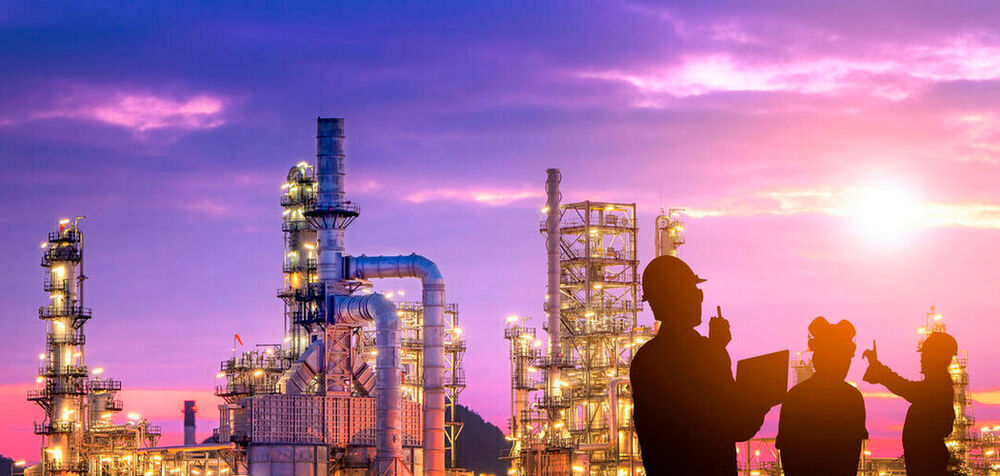
Saipem, Clough Sign 2.7-Billion-Dollar Contract for Developing Urea Plant in Australia
Clough and Saipem, in an equally shared (50/50) joint venture, have reached a new agreement with the client Perdaman Industries for the development of Perdaman Industries urea plant on the Burrup Peninsula, northwest of Karratha, on the coastline of Western Australia.
The agreement replaces the one previously announced on 30 December 2020 - which was removed from Saipem’s backlog at the end of March 2022 - and reflects the changed market scenario which has developed globally in recent months. The new contract value is around 2.7 billion dollars (share of each JV participant 1.35 billion dollars) with further risk and reward provisions to provide flexibility to manage any potential further deterioration in market conditions.
The contract effectiveness is subject to a Full Notice to Proceed to be issued by Perdaman Industries upon, among others, the closing of the Project Financing.
The scope of work includes engineering, procurement of equipment and materials, construction, pre-commissioning and commissioning (EPC) for the execution of a latest-generation fertilizers plant with a capacity of 2.14 million tons of urea per year.
The Saipem-Clough Joint Venture will collaborate with Haldor Topsoe and use its Syncor technology to build the world’s largest single-line ammonia plant, while Saipem proprietary Snamprogetti Urea technology will be used for the urea production.
Oman to Build its First Waste-to-Hydrogen Facility for 1.4-Billion Dollars
 The green hydrogen produced at the facility can be sold and transported for international use or, alternatively, H2-Industries can create low-cost synthetic diesel or SAF, with the captured CO₂.
The green hydrogen produced at the facility can be sold and transported for international use or, alternatively, H2-Industries can create low-cost synthetic diesel or SAF, with the captured CO₂.June 03 – H2-Industries and Public Establishment for Industrial Estates – Madayan have signed a memorandum of understanding (MOU) to develop a waste-to-hydrogen plant in conjunction with PV solar power plants with base-load capacity in the Sultanate of Oman. The proposed 1.4-billion-dollar facility will be built on a 200,000 sq. m coastal site.
The facility will initially convert up to one million tons of municipal solid waste each year sourced from waste management operators and mined from existing landfills but has the capacity to expand to manage up to four million tons of waste. The project also includes the construction of a 300 MW base-load capable PV solar installation that will include 70 MW of electrical storage.
The annual production of hydrogen and CO2 generated from the waste has an export value of over 268 million dollars, comprising 67,000 tons of green hydrogen and one million tons of CO₂. Although the primary function of the plant is to produce green energy without environmentally harmful emissions, it also offers additional benefits to the region. The project will allow Oman to develop an effective waste management system, creating employment and delivering other socio-economic benefits.
H2-Industries’ proprietary technology transforms organic waste including plastic, sewage sludge, and existing landfill waste in a thermos-chemical process into green hydrogen and pure CO₂. This is achieved without the use of external electricity or burning waste, making the entire process emission free. The green hydrogen produced from that process can be transported and stored, using H2-Industries’ Liquid Organic Hydrogen Carrier (LOHC) technologies, and released on demand for use in industrial applications.
Once the predevelopment and permitting phase is completed, the facility will start producing hydrogen in approximately 30 months.
Repsol to Invest 112-Million-Dollars to Build a ‘Super Polymer’ Manufacturing Plant
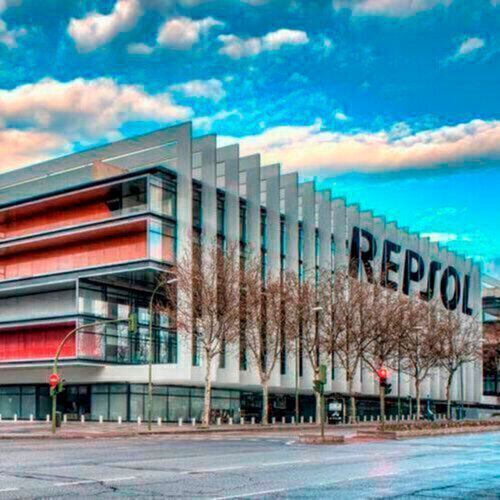 June 07 – Repsol will invest 112 million dollars (105 million euros) in the Puertollano Industrial Complex to build the first plant in the Iberian Peninsula capable of manufacturing ultra-high molecular weight polyethylene (Uhmwpe), a material considered a 'super polymer' due to its exceptional properties.
June 07 – Repsol will invest 112 million dollars (105 million euros) in the Puertollano Industrial Complex to build the first plant in the Iberian Peninsula capable of manufacturing ultra-high molecular weight polyethylene (Uhmwpe), a material considered a 'super polymer' due to its exceptional properties.This new plant will be operational by the end of 2024 and will have an annual capacity of 15,000 tons. For the construction of the plant, Repsol has selected the technology of DSM, a renowned Uhmwpe producer based in the Netherlands. This involves the use of cutting-edge, proven technology that adapts to the needs of customers.
Uhmwpe is a material that, due to its exceptional hardness and strength characteristics, can replace steel in some applications and has high impact resistance, high toughness and self-lubricating capacity.
Applications include highly differentiated products with high added value, such as lithium-ion battery separators, construction profiles, coatings, parts for personal and military protection and medical applications such as prostheses, implants or dialysis filters. Currently, the Uhmwpe market is growing due to the extraordinary characteristics of this material, which combines excellent mechanical properties with high lightness.
With this project Repsol will be one of the few companies in the world that manufactures this 'super polymer'. With the support of auxiliary companies, the construction and start-up of the plant will require some 700 professionals from different disciplines.
Europe’s First Lithium Refining and Conversion Project May Soon be Announced
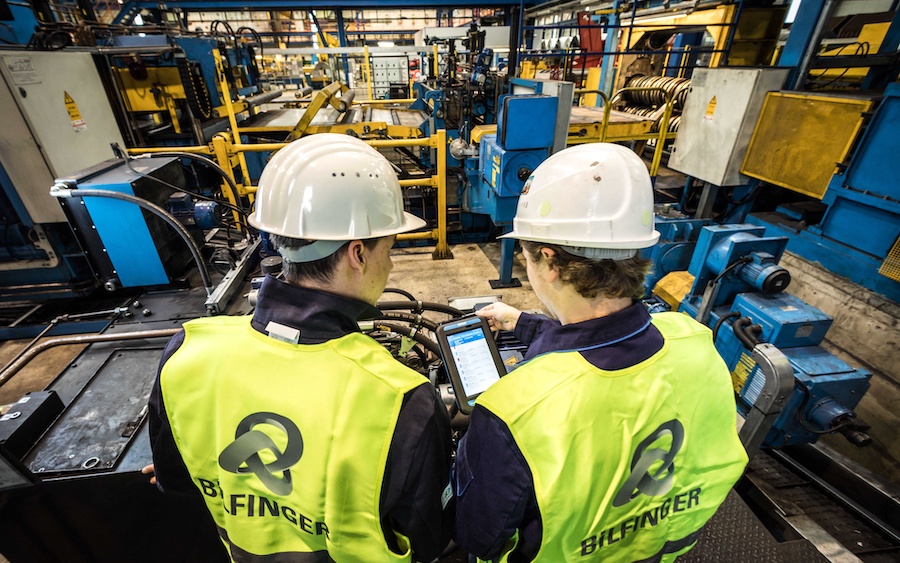 Technip Energies has been awarded a Bankable Feasibility Study (BFS) contract by Viridian Lithium for the construction of the first lithium refining and conversion plant in Europe.
Technip Energies has been awarded a Bankable Feasibility Study (BFS) contract by Viridian Lithium for the construction of the first lithium refining and conversion plant in Europe.Located in Lauterbourg, France, the plant will produce up to 100,000 tons of Battery Grade lithium chemicals per year – which is the equivalent capacity to power 2 million electric vehicles – to enable a secure and sustainable battery supply chain for the transition to electric mobility.
The contract consists in a Bankable Feasibility Study (BFS), and a preferential right on the construction of the plant and its three foreseen extensions.
Purified lithium chemicals are non-substitutable materials for lithium-ion batteries and are strategic materials for the European automotive industry. The Project will increase the supply chain autonomy of the region’s electric vehicle industry. Lithium is one of the four key metals of the energy transition.
Evonik Invests 220-Million-Dollars for New Lipid Production Facility in USA
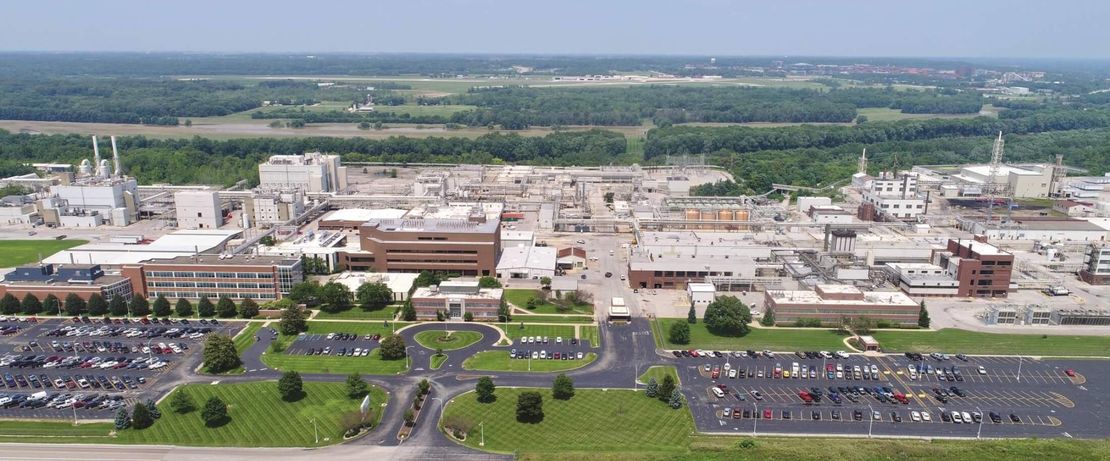
Evonik is building a new, highly flexible, global-scale production facility for pharmaceutical lipids in the United States. The new plant at Evonik’s Tippecanoe site in Lafayette, Indiana, will broadly position the Group for future growth in novel Mrna-based therapies beyond Covid-19 vaccines and strengthen its leading role as a strategic partner for innovative pharmaceutical companies worldwide. Construction will begin in early 2023, and the plant is scheduled to go onstream in 2025. The investment into the lipid facility will help create more than 80 highly skilled jobs in the Lafayette region.
The total investment amounts to 220-million-dollars. The U.S. Government is funding the facility with up to 150 million dollars through its Biomedical Advanced Research and Development Authority (Barda), a component of the Office of the Assistant Secretary for Preparedness and Response in the U.S. Department of Health and Human Services.
The Tippecanoe site in Indiana is Evonik’s preferred location for this project due to its existing infrastructure, a highly skilled workforce, and readily available technologies.
The new multi-purpose facility will allow the rapid and flexible production of a variety of lipids. These will serve future applications of Mrna technology in infectious disease control, cancer immunotherapy, protein replacement, and gene therapy. Furthermore, the new facility ensures a rapid and extensive supply of lipids as needed in case of a future pandemic.
Lipids, molecules that make up the building blocks of living cells, are critical to producing Mrna-based drugs. The Mrna is enclosed in a lipid nanoparticle (LNP) composed of specific lipids. The LNP protects the Mrna and delivers it safely into the cell, where it is released. LNPs are currently the most advanced drug delivery system and have gained worldwide acceptance in the fight against Covid-19 due to their versatility.
Europe Witnesses Start Up of Unique E-Cracking Furnace Experimental Unit
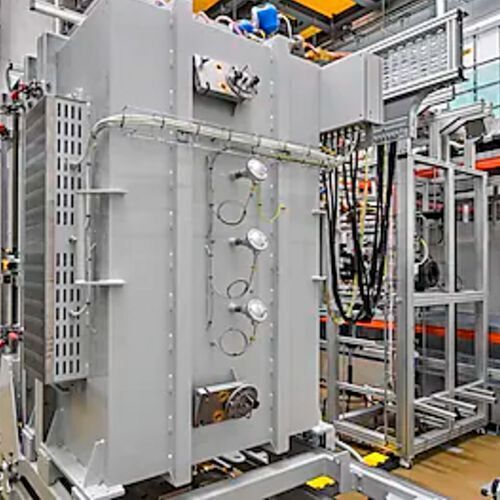 Shell and Dow have started up an experimental unit to electrically heat steam cracker furnaces at the Energy Transition Campus Amsterdam, The Netherlands. This represents a key milestone in the companies’ joint technology program to electrify steam cracking furnaces, bringing the companies one step closer to decarbonizing one of the most carbon intensive aspects of petrochemical manufacturing.
Shell and Dow have started up an experimental unit to electrically heat steam cracker furnaces at the Energy Transition Campus Amsterdam, The Netherlands. This represents a key milestone in the companies’ joint technology program to electrify steam cracking furnaces, bringing the companies one step closer to decarbonizing one of the most carbon intensive aspects of petrochemical manufacturing.Over the next year, the experimental unit will be used to test a theoretical electrification model developed for retrofitting today’s gas-fired steam cracker furnaces. Data generated by the unit will be used to validate the model and allow the electrification program to advance to the next phase; the design and construction of a multi-megawatt pilot plant, with potential start-up in 2025, subject to investment support.
Thomas Casparie, Senior Vice President of Shell’s Chemicals and Products business in Europe, said “Today, we have taken a great step forward in helping to decarbonize one of the central processes of our industry, while also supporting Shell’s goal to be a net-zero emissions energy business by 2050. I look forward to the results of the experimental unit and to continue this vital collaboration with Dow.”
“This milestone demonstrates that low carbon emissions manufacturing technologies are within reach,” said Keith Cleason, Vice President Dow Olefins, Aromatics and Alternatives business. “The collaboration with Shell has the potential to reshape the way our industry manufactures products in future decades.”
As the energy grid becomes increasingly renewables led, using renewable electricity to heat steam cracker furnaces could become one of the routes to decarbonize the chemicals industry. E-cracking furnaces operated using renewable electricity have the potential to reduce 90 % of the scope 1 emissions at economically competitive costs with conventional crackers.
One of the Largest Green H2 Production Plants to be Developed in Europe
 HH2E and the Swiss Met Group have recently announced a partnership to develop one of the largest production plants for green hydrogen in Europe to date in Lubmin/Mecklenburg-West Pomerania on the German Baltic Sea coast. In the first expansion stage, the project is to include the construction of a new generation Power-to-X plant with a capacity of around 6,000 tons (~ over 200,000 MWh) of green hydrogen per year. In a second expansion stage, an output of over 1 GW is planned, which will produce more than 60,000 tons of green hydrogen per year and avoid over 800,000 tons of direct CO2 emissions annually.
HH2E and the Swiss Met Group have recently announced a partnership to develop one of the largest production plants for green hydrogen in Europe to date in Lubmin/Mecklenburg-West Pomerania on the German Baltic Sea coast. In the first expansion stage, the project is to include the construction of a new generation Power-to-X plant with a capacity of around 6,000 tons (~ over 200,000 MWh) of green hydrogen per year. In a second expansion stage, an output of over 1 GW is planned, which will produce more than 60,000 tons of green hydrogen per year and avoid over 800,000 tons of direct CO2 emissions annually.The construction of the first expansion stage of the plant in Lubmin, with a total investment of over 200 million euros, is to start in 2023. Commissioning is planned for 2025. The second stage of expansion is scheduled to go into operation in 2030. The total investment involved can exceed 1 billion euros.
The technological configuration developed by HH2E for the green power plant in Lubmin is another step towards 100 % renewable energy for all consumption sectors and 24/7. The volatility of renewable energy production is solved by combining a 50MW alkaline electrolyzer with a 200MWh high-capacity battery, enabling constant production of green hydrogen.
According to Andreas Schierenbeck, co-founder and board member of HH2E, “The electrolyzer produces green hydrogen when there is enough electricity from the wind and sun, and the battery is then also charged. If the simultaneous generation of renewable energy is not enough, the battery provides the green electricity that keeps the electrolyzer in constant production. Our technology mix thus enables maximum use of electrolysis even when the availability of green electricity is inconsistent.”
The electricity feed-in from renewable energies is to be secured via long-term power purchase agreements (PPAs) for electricity from offshore and onshore wind farms and solar parks in the region.
Jörg Selbach-Röntgen, CEO of Met Germany, said: “The market in Germany shows an extraordinarily high interest in green hydrogen as part of the energy transition and the raw material mix. As the Met Group, we are interested and committed to making our contribution to the energy transition. The development of the project will depend heavily on the demand from industry and the energy sector in Germany, which we want to ensure through reliable and long-term supply relationships.”
The partnership between HH2E and Met Group is substantiated in the founding of the project company ‘H2 Lubmin’, which will be responsible for the development of the project, the construction and the long-term operation of the new plant.
Fintoil Selects Emerson, Neste to Optimize Operations at World’s Third-Largest CTO Biorefinery
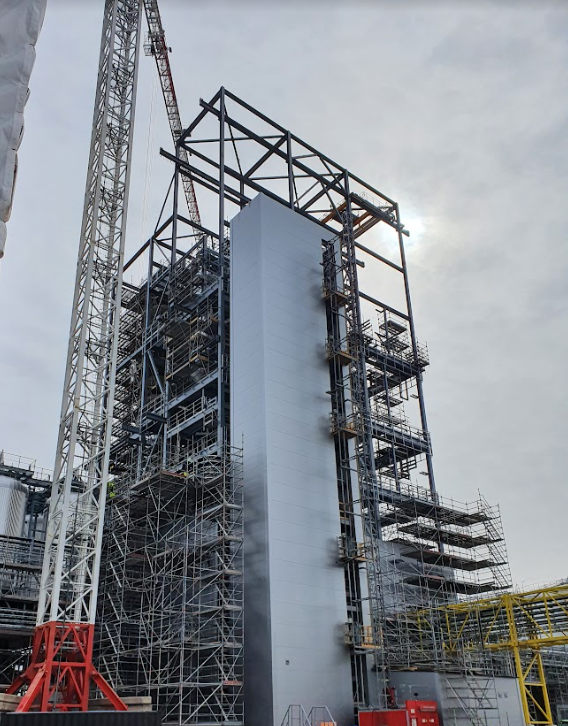 Fintoil, together with Neste Engineering Solutions, has selected Emerson’s automation software and technologies to maximize the operational performance of its biorefinery being constructed in the port of Hamina-Kotka, Finland. The plant will be the third-largest crude tall oil (CTO) biorefinery in the world and produce advanced biofuel and biochemical feedstocks that help lower emissions and reduce reliance on fossil-based fuels.
Fintoil, together with Neste Engineering Solutions, has selected Emerson’s automation software and technologies to maximize the operational performance of its biorefinery being constructed in the port of Hamina-Kotka, Finland. The plant will be the third-largest crude tall oil (CTO) biorefinery in the world and produce advanced biofuel and biochemical feedstocks that help lower emissions and reduce reliance on fossil-based fuels.The plant will refine CTO, a by-product of the wood pulping process, to produce a sustainable feedstock for renewable second-generation diesel, as well as rosin, sterol pitch and turpentine used in the chemicals, foodstuffs and pharmaceuticals industries. These CTO derivatives have a carbon footprint up to 90 % smaller than their fossil-based equivalents.
“This state-of-the-art facility, which utilizes Neste Engineering Solutions’ Nexpinus technology, uses 40 % less energy than a conventional tall oil refinery, and is the perfect example of efficient and sustainable production that supports the circular economy,” explained Fintoil CEO Jukka Ravaska. “Working with Neste Engineering Solutions and Emerson to implement the latest digital automation technologies will enable us to operate the plant safely and efficiently, minimize operating costs and deliver large-scale production of biofuel and biochemicals as a viable alternative to fossil-based products.”
To reduce project risk and ensure schedule and budget are maintained, Emerson will apply its Project Certainty methodology, which digitalizes project execution and uses practices such as remote testing of equipment. And to enhance plant security performance, Emerson consultancy services will advise on the implementation of cybersecurity best practices.
In addition to providing Nexpinus, and engineering, procurement and construction management for the project, Neste Engineering Solutions will also be responsible for delivering the entire application software for the new CTO biorefinery.
Construction of the facility is expected to be completed in 2022. The expected annual capacity of 200,000 tons will create a 400,000-ton reduction in CO2 emissions, which is roughly 1 % of Finland’s total emissions.
UK Launches its Largest Carbon Capture Plant
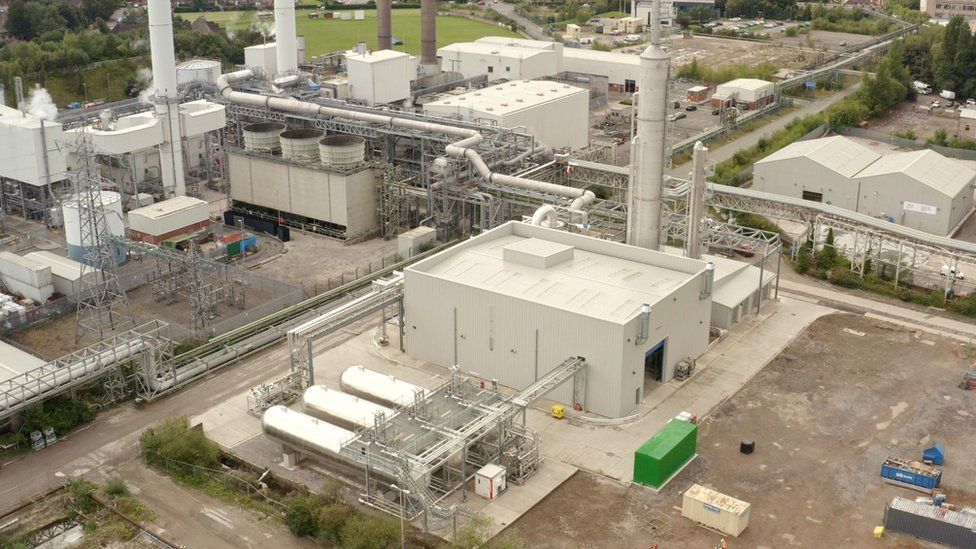 The 25-million-dollar investment has been completed by Northwich-based Tata Chemicals Europe, one of Europe's leading producers of sodium carbonate, salt and sodium bicarbonate. The plant captures 40,000 tons of carbon dioxide each year - the equivalent to taking over 20,000 cars off the roads and reduces TCE’s carbon emissions by more than 10 %. The project will help unlock the future of carbon capture in the UK as it demonstrates the viability of the technology to remove carbon dioxide from power plant emissions and to use it in high end manufacturing applications.
The 25-million-dollar investment has been completed by Northwich-based Tata Chemicals Europe, one of Europe's leading producers of sodium carbonate, salt and sodium bicarbonate. The plant captures 40,000 tons of carbon dioxide each year - the equivalent to taking over 20,000 cars off the roads and reduces TCE’s carbon emissions by more than 10 %. The project will help unlock the future of carbon capture in the UK as it demonstrates the viability of the technology to remove carbon dioxide from power plant emissions and to use it in high end manufacturing applications.In a world-first, carbon dioxide captured from energy generation emissions is being purified to food and pharmaceutical grade and used as a raw material in the manufacture of sodium bicarbonate which will be known as Ecokarb. This unique and innovative process is patented in the UK with further patents pending in key territories around the world.
Ecokarb will be exported to over 60 countries around the world, generating tens of millions of export revenue every year. Much of the sodium bicarbonate exported will be used in haemodialysis to treat people living with kidney disease.
The manufacturer is the only business in the UK to make these products which are used to make essential items in everyday life, from glass, washing detergents and pharmaceuticals to food, animal feed and water purification.
Speaking at the opening of the plant, Mike Amesbury, MP for Weaver Vale said: “The investment made by Tata Chemicals Europe in this leading-edge carbon capture plant will not only support the reduction of carbon dioxide emissions here, but it will also pave the way for others to use this technology. Tata Chemicals Europe helps support over 1000 jobs so this type of sustainable investment will help secure chemical manufacturing in Cheshire for future generations.”
Neste Invests 1.9-Billion-Euros for Expanding Refinery in the Netherlands
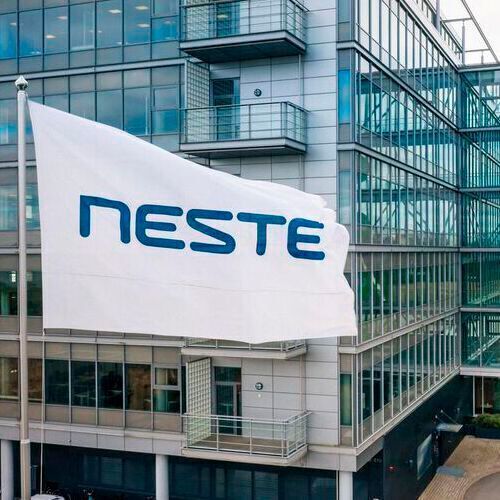 Neste Corporation has made the final investment decision to invest into new renewable products production capacity in Rotterdam. The decision is based on demand for renewable products growing substantially with customers' higher climate ambitions.
Neste Corporation has made the final investment decision to invest into new renewable products production capacity in Rotterdam. The decision is based on demand for renewable products growing substantially with customers' higher climate ambitions.Neste’s current 1.4-million-ton capacity for renewable products in Rotterdam is the largest in Europe. The Rotterdam refinery expansion investment of approximately 1.9 billion euros will expand Neste’s overall renewable product capacity by 1.3 million tons per annum, bringing the total renewable product capacity in Rotterdam to 2.7 million tons annually, of which sustainable aviation fuel (SAF) production capability will be 1.2 million tons. The company’s target is to start up the new production unit during the first half of 2026.
“The investment in the expansion of our Rotterdam refinery strengthens our global leading position in renewable products. It also marks an important step in ensuring our future competitiveness and our renewables’ growth strategy execution as it will bring a substantial amount of renewable diesel, SAF and renewable feedstock for polymers and chemicals to our sustainability-focused customers,” says Matti Lehmus, President and CEO of Neste.
“This investment will further strengthen our competitive advantages which are based on the global optimization of our production and waste and residue raw material usage. With our proprietary Nexbtl technology, high quality renewable products can be refined flexibly from a wide variety of lower quality waste and residues. The new production line - together with our Singapore expansion - will be best in class in terms of energy efficiency and raw material flexibility,” continues Lehmus.
When completed, the Rotterdam expansion project will further increase the company’s total production capacity of renewable products to 6.8 million tons by the end of 2026.
< PreviousNext >





